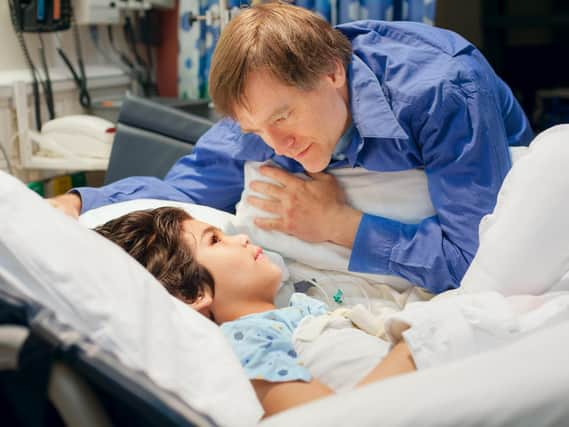Cerebral Palsy: Leeds families continue fight for justice


It’s a devastating condition that affects around one in every 400 babies born in the UK every year.
While many can go on to live fulfilling lives, there’s no doubt that a cerebral palsy diagnosis leaves new parents reeling and racked with fear over what might lie ahead.
For most, the first question is often the hardest to answer: “Why?”
Then, when the responses from medical professionals are hard to understand, too complex or simply don’t add up, many can be left wondering where to turn.
Concerns over how to support cerebral palsy patients and their families is just one theme of this year’s World Cerebral Palsy Day, held on Saturday, October 6.
It throws a spotlight on the condition, celebrates the ‘against the odds’ achievements of people living with cerebral palsy, their families and the professionals who devote their time and effort to supporting them – whether through research seeking answers or those who battle on their behalf in search of justice.
According to leading birth injuries lawyer Diane Rostron, parents are left with concerns as they look further to the future and contemplate how their child might cope as they grow and reach adulthood while they, themselves, are also ageing.
“Cerebral palsy presents itself differently from one person to the next. Although some of the symptoms can be identified as early as when a baby is five months old, a full diagnosis of the long-term effects is difficult until a child reaches the age of four or five.
“Unfortunately, medical negligence can be responsible for many cases of cerebral palsy - a complex condition that is entirely avoidable if the appropriate level of medical care is given.
“It’s very difficult for the parents who instruct us as their baby’s development, and the full scale of their unique CP unfolds over a period of a few years.
“Raised awareness through events such as World Cerebral Palsy Day is helpful both to the families affected, and their support networks.”
Blunders link to cerebral palsy
There are approximately 660,000 births each year, of which around 1,800 are affected by cerebral palsy, which can be caused by medical negligence at birth.
According to the NHS, cerebral palsy refers to a group of conditions affecting movement and co-ordination caused by a problem with the brain that occurs before, during or soon after birth.
Symptoms can include developmental delays, problems with speech and vision and learning difficulties.
Research into 50 cerebral palsy cases by NHS Resolution, which handles compensation claims on behalf of NHS in England, revealed disturbing evidence last year of midwives failing to properly monitor the heartbeats of babies during labour and a worrying number of incidents of junior doctors attempting to perform complex deliveries with no previous experience.
The errors, identified at 40 separate hospitals, are expected to cost the NHS £390m in medical negligence compensation.
Meanwhile, its annual report revealed that four babies a week are left brain damaged by NHS blunders, with claims against maternity units up by almost a quarter on the previous year.
It also showed that parents made claims against the NHS at a rate of around 20 a month during 2016-17. The number of claims, totalling 232, were the highest for 11 years and represented a jump of 23 per cent on the previous year.
The total value of compensation following preventable brain damage and cerebral palsy incidents was the highest on record – up nearly a third to £1.9bn – with an average payment of £8m per child. The figure is in stark contrast to that in 2004/05 during which a total of £363m was paid out
Help for the future
The number of parents taking legal action is increasing.
Last month, the parents of a 10-year-old boy who has cerebral palsy as a result of oxygen deprivation during birth, agreed to a damages package approaching £10 million with bosses at Southend University Hospital NHS Foundation Trust.
The settlement, which includes a lump sum plus regular payments, was said to cover future care costs and to compensate the boy’s parents for the care that they had already provided.
In July, a 12-year-old girl whose brain was starved of oxygen before her delivery at Hinchingbrooke Hospital in Cambridgeshire, was awarded more than £15m in NHS compensation after the hospital agreed to settle the case.
Diane Rostron, who has settled a number of £multi-million cerebral palsy cases, said: “Families are entitled to compensation to cover their child’s extensive care needs, home adaptations, equipment and potential future loss of earnings in instances where their child may be unable to gain employment due to their disabilities”.
She urges affected parents to get in touch to discuss their options.
To find out how Diane’s team can help, contact her office on 01253 766 559, and visit her website